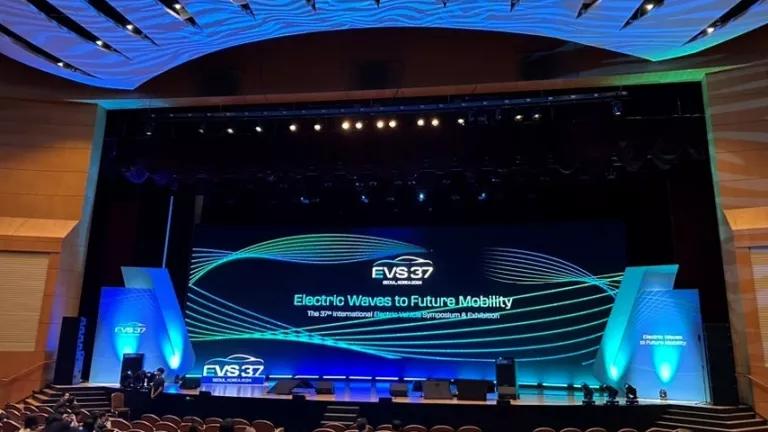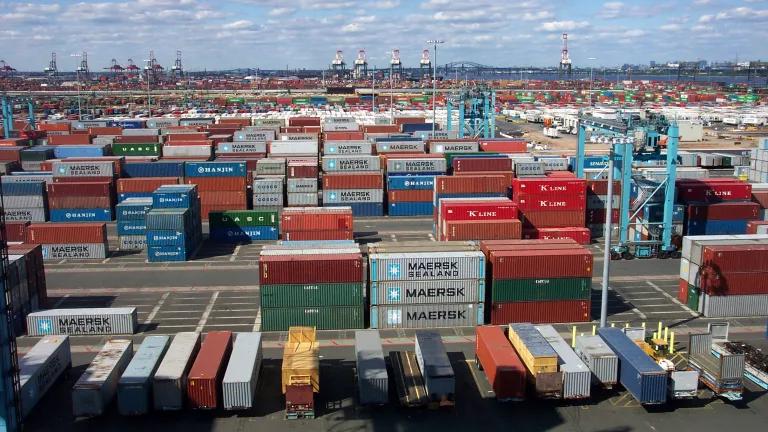
Beep-beep! Honk! Screeeeech! Ugh.
No matter where we live we all hate traffic. But all gridlock is not created equally -- some places have it worse than others. Washington, D.C., where I work, is known for its particularly bad commute. Indeed, the only thing possibly worse than the partisan gridlock in this town is the traffic gridlock.
According to the latest data in the annual report by the Texas Transporatation Institute, the D.C. region once again tops the list of most congested cities. Here's a snapshot look at how D.C. comes by that dubious ranking. Politico sums up the situation:
Area drivers spend an average of 67 hours stuck in traffic, six more than second place. We’re also No. 1 in a few other areas: fuel used per commuter traveling during peak hours, pounds of carbon dioxide emitted per car during rush hour and cost of congestion per driver. The region even ranks first in a brand new statistic — the “planning time index,” which charts “the total travel time that should be planned for a trip.” A PTI of 3 means that travelers should budget a full hour for what would normally be a 20-minute trip in light traffic. D.C. tops the list at 5.72 — meaning drivers who want to be late only once a month should budget more than an hour and 40 minutes for a trip that could take as little as 20 minutes.
The TTI study of national driving patterns reveals that commuters nationwide are adapting to increasing traffic congestion by building delays into their schedules, but at a cost of $121 billion in wasted time and fuel. Moreover, Americans wasted an average of $818 each sitting in traffic in 2011. The total nationwide added up to 5.5 billion additional hours that Americans spent in their cars during 2011. Besides spending more time and money stuck in traffic, all that driving means means more oil consumed, fossil fuel pollution spewed into the air, and carbon dioxide entering the atmosphere.
How's this for twisted logic? The only solution to bad traffic is...more cars? No. More highways? Of course not. Then why is it that in the face of crumbling roads all across the U.S. we're still building new ones? Wait, what?
The Congressional Budget Office estimates that the country needs $14 billion in additional federal funds each year just to maintain highways and $50 billion more to improve them. But climbing fuel economy, stagnant gas tax will cause Highway Trust Fund to develop $365.5 billion deficit over next 23 years, according to CBO. So get ready to drive over the transportation fiscal cliff, America!
Compounding the federal funding crisis is the fact that states are also facing transportation budget woes. Rather than implement policies to raise more revenues the typical response is to simply scale back repair work -- commonly referred to as "deferred maintenance." At the same time, however, state DOT's rarely hesitate to use their scant transportation resources to build more roads and highways -- thereby digging the maintenance hole even deeper. But drivers are slowly awakening to the realization that roads aren't free -- once they're built, the costs to maintain them in safe condition just keep coming.
McClatchy newspapers just published an investigative piece on the extent of the problemsancial crisis facing our transportation network. The story revealed:
- The oldest parts of the interstate highway system have reached the end of their life cycle, including thousands of bridges dating to the 1960s, a potential threat to public safety and commerce.
- The federal gasoline tax no longer covers the country’s annual highway spending, but few leaders in Washington are willing to take on the political risk of increasing it, which forces states to borrow more money, raise tolls or ask their residents to approve new taxes.
- Despite a ban on members of Congress “earmarking,” or skimming money for pet projects back home, lawmakers and the special interests that bankroll their campaigns still exert outsized influence on where federal highway funding goes.
- The U.S. Department of Transportation long ago ceded control over most highway decision-making to the states without well-defined national transportation goals, leaving a large portion of federal money up for grabs for those with the most clout.
The McClatchy piece is as illuminating as it is depressing. State and federal funding continues to fall short yet our elected leaders fail to take necessary action to raise infrastructure revenue or to align our transportation priorities with our nation's needs. At a time when too many Americans are spending too much time and money driving -- household gas costs are at an all-time high -- we shouldn't be wasting more money on roads to nowhere, which simply worsen gridlock and drive down our productivity, quality of life, public health and environment. With the constrained resources on hand, we can fight congestion, get the country moving again, and get people back to work by investing more transportation dollars in public transit.
Transit as a solution? You bet. Take the TTI traffic study just for the D.C. region. In 2011 transit saved commuters 33,810 hours and $711 million dollars. All told, the TTI report says public transit saved 865 million hours of delay on our nation’s roads. So, compared to commuting by car, transit rules. Remember that Dodge Ram commercial during the Super Bowl that extolled farmers? If you ask me, God created transit.




